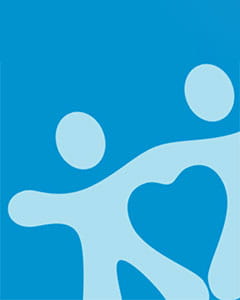Is your child ready to be potty trained?
Written by Erika Diogene, DO
Potty training is an important developmental milestone, but can also be a stressful time for parents of toddlers. There is no set age to start potty training, but most children will begin to show interest between 18 to 24 months of age. The first question to ask is whether you are ready to potty train your toddler. Parents are ready to begin potty training their toddler when they can devote up to 3 months of daily encouragement to their child.
Your child may be ready in one area of development but not in another. Pushing your child too early can actually prolong the process. For most children, their digestive systems and bladders are mature enough to be able to delay a bowel movement or urination until they can reach a potty at about 18 months of age. They are mentally ready when they can connect the need to go to the bathroom with using the potty. They should also be able to remember to go to the potty as well as resist distractions long enough to complete the process.
Other signs that your child is ready include:
- Eagerness to please
- A desire to use the potty
- The ability to help dress and undress themselves
- The ability to follow simple instructions
- The ability to sit on and get up from the potty
- A desire to wear “big kid” underwear
- Interest in imitating other family members in the bathroom
- Bowel movements that occur on a fairly predictable schedule
- The ability to stay dry for periods of 2 hours or longer during the day
If your child is showing signs that they are ready to potty train, here are some tips to get started:
- Make trips to the potty part of your routine.
- Pick a potty chair. These are easier for toddlers since they have no problem getting on it and their feet can reach the floor.
- Decide what words to use to describe body parts, urine, and bowel movements. Try to use proper terms that will not offend, confuse, or embarrass anyone.
- Help your little one recognize signals that they need to use the potty. Pay attention to their words and facial expressions. If you notice signs that they need to use the restroom such as squirming, squatting or patting the genital region, take them to the potty.
- Encourage the use of training pants to help your little one feel accomplished and proud. If an accident occurs, let them know that it’s ok, accidents happen, and they can try again. Punishing them or making them feel bad when they have an accident will only add unnecessary stress and will hinder their progress.







